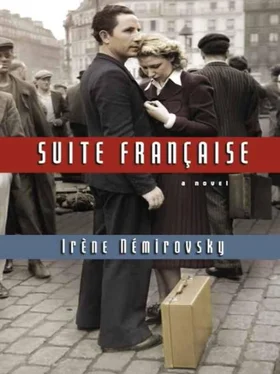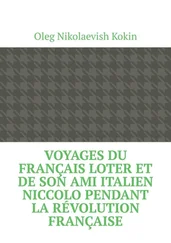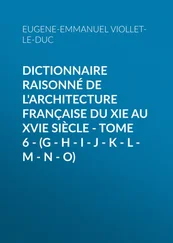Has found a religious boarding school near Paris for 2,000 francs per month per child.
[33] Banque de l'Union Européenne (formerly the Banque des Pays du Nord where Michel Epstein was Manager). (Editor)
7 August 1945
Omer Englebert to André Sabatier
I am pleased to inform you that the Russian Jewish novelist (I can't recall her name!) whose daughters you wanted to help and whom Monsieur Sabatier recommended to me on your behalf, have been accepted at the Dames de Sion, in Grandbourg near Evry-Petit-Bourg. The Mother Superior has just told me that they can attend at the beginning of the coming academic year.
29 August 1945
Julie Dumot (46 rue Pasteur, Marmande) to A. Sabatier
I do not know how to thank you for your extreme loyalty. I am very happy for the children, especially for Babet who is only eight years old and has her entire education ahead of her. As for Denise, who is doing very well now, she can improve herself in this first-class establishment, as her mother wished. This is why I am so very grateful to you, for having made their parents' wishes come true. If Denise cannot continue her studies, she must have her Certificate of General Education to be able to work, we'll find out about that in a few days. Your kind letter reached me here where I have brought the children for their holidays. Denise is completely cured. She had an X-ray which showed that all signs of the pleurisy had disappeared. As for Babet, she is going to have her tonsils and adenoids out next week. I couldn't have it done sooner, as the doctor is on holiday, which means I'll get back to Paris a week later than expected.
Yes, Monsieur Sabatier, there was the possibility of the Société des Gens de Letters (Society of Men of Letters) doing something for the children. Monsieur Dreyfus, to whom I explained my situation, saying that I couldn't manage with my 3,000 francs per month, that Denise had been under medical care for six months, took the matter to his friend, Monsieur Robert, asking for something to be done for the children. The very same day, I informed Monsieur Esménard, who knows all about it. If you need any information about me, Tristan Bernard has known me since I was sixteen.
3 October 1945
Albin Michel Publishers to Julie Dumot
12,000 francs: Sept-Oct-Nov-Dec 1945.
7 December 1945
Robert Esménard (note for Mlle Le Fur)
Friday afternoon, I went to see Mme Simone Saint-Clair who is a member of a committee whose purpose is to come to the aid of I. Némirovsky's children. Certain individuals and groups are going to deposit a monthly amount to a notary who has been appointed to retain the money until, in theory, they have finished sitting the exams for their baccalauréat. Once Denise, the eldest, has passed it, I assume this matter will be reviewed.
Apart from that, these gifts will be received in such a way as to constitute a capital sum for I. Némirovsky's daughters, which they may use however they wish when they are no longer minors. There is already a certain sum, which includes a payment by the Banque des Pays du Nord where M. Epstein was employed, something in the region of 18,000 francs, corresponding to 3,000 francs a month with a certain number of back payments.
Mlle Dumot will have at her disposal, through the auspices of the notary, X amount to reimburse her for her expenses, then each month an amount to be decided. As for our firm, I have said that from the date of our last monthly payment-the sum of 2,000 francs per month will be paid, without, of course, this amount being deducted from I. Némirovsky's royalties. In addition, I shall allocate the sum of 2,000 francs per month from Mme Némirovsky s royalties, dating from the month when I began sending these monthly payments, in other words, these monthly payments will be calculated retrospectively from the date of the first payment.
Widespread announcements will be made in the press to raise money.
7 December 1945
W. Tideman to Irène Némirovsky
I am a journalist working for a newspaper in Leyden (Holland) for whom I have offered to translate a novel or short story from French, in instalments. They have just informed me that they agree in principle to publish whatever I suggest or send them. I explained to them that there would be royalties to pay, which would undoubtedly be much greater for a novel already published here, as the publishers would claim their share, than for a new, unpublished short story, for which they would only have to deal with the author. And I thought of you even though I am only familiar with your novels.
29 December 1945
Albin Michel's reply to W. Tideman
I have seen the letter sent to my offices addressed to I. Némirovsky and am alas! unable to pass it on to her. Mme I. Némirovsky was, in fact, arrested in July 1942 then deported to Poland, we think. Since the date of her arrest, no one has heard anything from her.
Preface to the French Edition [1]
In 1929 the French publisher Bernard Grasset was so enthusiastic about a manuscript he had received in the post that he immediately decided to publish it. It was only as he was about to send a contract to the author of the novel, entitled David Golder, that he realised no name or address had been given-just a post office box number. He put an advertisement in the newspapers asking the mysterious author to make contact.
When Irène Némirovsky arrived to meet him a few days later, Bernard Grasset was astonished: how could this fashionable, cheerful young Russian woman, who had lived in France for only ten years, have written a book that was so brilliantly daring, cruel, and mature? He questioned her carefully to make sure she wasn't standing in for a famous author who wished to remain anonymous, but as he did so his admiration grew. Her French was impeccable (although born in Kiev, she had learned it from her governess); as well as Russian, she knew Polish, Basque, English, Finnish and a little Yiddish (a language she would make use of in her novel Les Chiens et les Loups, published in 1940).
David Golder was an overnight success, unanimously acclaimed by the critics and admired by other writers. However, the twenty-six-year-old Irène Némirovsky refused to be carried away by her sensational entry into the literary world. She was surprised that so much fuss was made over David Golder, which she considered, without false modesty, a "minor novel." On 22 January 1930 she wrote to a friend, "How could you think I could possibly forget my old friends because of a little book which people have been talking about for a few weeks and which will be forgotten just as quickly, just as everything is forgotten in Paris?"
Irène Némirovsky was born 1903 in Kiev, then part of the area known as Yiddishland to which Russian Jews were confined. Her father's family came from the Ukrainian city of Nemirov, which had been an important centre of the Hassidic movement in the eighteenth century. Léon Némirovsky had the misfortune to be born in 1868 in Elisabethgrad, the city where the great waves of pogroms against the Jews began in 1881. However, his family had prospered, becoming wealthy by trading in grain. As a young man Léon had travelled widely before making his fortune in finance, going on to become one of the richest bankers in Russia. His business cards read, "Léon Némirovsky, President and Managing Director of the Bank of Commerce of Vorononej, Administrator of the Union Bank of Moscow, Member of the Private Commercial Banking Committee of Petrograd." He bought an enormous private house overlooking St. Petersburg, on a quiet street lined with gardens and lime trees.
Irène was not a happy child. Her mother, who liked to be called Fanny (after her Hebrew name, Faïga), saw the birth of her daughter as the first sign of her declining youth and beauty. She felt a kind of aversion to Irène, for whom she never showed the least sign of love, and would spend hours in front of the mirror pampering herself, or away from home in search of extramarital affairs. She could not bear the idea that her looks would fade, or that she might turn into the kind of older woman who kept young men. She forced Irène to dress like a schoolgirl well into her teens in order to convince herself that she wasn't growing older.
Читать дальше

![Константин Бальмонт - Константин Бальмонт и поэзия французского языка/Konstantin Balmont et la poésie de langue française [билингва ru-fr]](/books/60875/konstantin-balmont-konstantin-balmont-i-poeziya-francuzskogo-yazyka-konstantin-balmont-et-thumb.webp)










